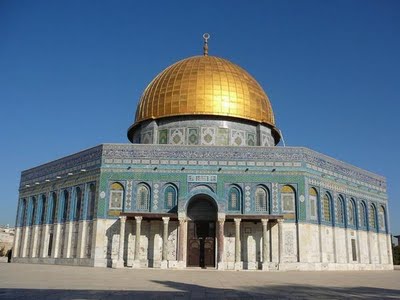Al Aqsa Mosque At Centre Of Tensions And Violence
Al Aqsa

NEW DELHI: Jerusalem is particularly tense as security is tightened ahead of September 23 -- the day of both Eid al-Adha and the holiest day in the Jewish calendar, Yom Kippur. At the centre of the tensions is Al Aqsa, as three days of clashes rocked the compound last week -- leaving one dead and dozens injured.
Yom Kippur begins Tuesday night and lasts until Wednesday evening, and thousands of Jews are expected to visit the Western Wall below the Al-Aqsa compound in Jerusalem's Old City. Eid al-Adha begins Wednesday and continues until Sunday.
Tensions came to a blow in the days preceding Rosh Hashanah or the Jewish New Year. Uri Ariel, Israel’s Agriculture Minister, ascended what the Jews call Temple Mount and the Muslims refer to as "Al Haram al-Sharif" ("The Noble Sanctuary") on which Al Aqsa compound is located. Ariel then announced his intention to pray there. Muslim leaders responded by calling on the public to “defend” their holy places, and skirmishes broke out across Jerusalem, with Israeli police clashing with rioters al Al Aqsa.
The Israeli police, according to public statements, say they were acting on intelligence that Palestinian extremists were planning on attacking Jewish worshippers at the Western Wall. The “extremists” who showed up were in the form of Palestinian teens armed with rocks. Clashes resulted in the Israeli police using tear gas and stun grenades.
That night, an Israeli man was killed in southern Jerusalem when his car crashed into a wall after it was pelted with stones.
The Israeli police is now armed with greater leeway to open fire on those who throw stones, bottles, or explosives, after Israeli Prime Minister Benjamin Netanyahu convened an emergency meeting last week and announced that his government intended "to give tools to the police and soldiers to act very aggressively against those who throw rocks and petrol-bombs."
Although these tensions are to be expected around Jewish High Holy Days, as some Jews seek to ascend what they call Temple Mount, as they believe it to be the location of the first and second Holy Temples -- the city has been unusually tense since Israel’s offensive on Gaza last summer. According to a long standing agreement, non-Muslims are not permitted any form of prayer on Haram al-Sharif, and are allowed to visit only between Muslim prayer times.
However, in recent months Jewish hardliners are pushing to change the status quo. In November last year, violence gripped Jerusalem over Al Aqsa, with Palestinians alleging an illegal storming of the mosque as right-wing Israelis -- who had stepped up campaigning asking for Jews to be allowed to pray at the site -- were accompanied by 300 security forces. Palestinian officials said Israeli forces crossed the threshold of the mosque for the first time since 1967, while Israeli police have denied that they entered the building.
Tensions had followed a decision by Israeli authorities to close the Haram al-Sharif compound. The move was described by Palestinian President Mahmoud Abbas as a "declaration of war." The decision to shut down the mosque itself followed a failed assassination attempt on an Israeli-American activist whose organization strives to "liberate" the holy site of al-Aqsa mosque from Islamic "occupation." Israeli security forces then shot and killed a Palestinian man they believed responsible, leading to protests and allegations of indiscriminate killing -- a rouse that the Palestinians have raised repeatedly.
Although the current round of tensions seem to be history repeating itself, hardliners in Israel have been emboldened by the establishment of Israel's current right-wing government, and have openly declared their intention to gain permission for Jewish public prayer at the holy site.
This has had a diplomatic fallout as well for Israel. For instance, Jordanian King Abdullah II told a group of Israeli Arab ministers visiting Jordan a few days ago that “Al-Aqsa Mosque ... is a place for Muslim prayer only."
A few days before that, Saudi Arabia's King Salman Abdul Aziz spoke with President Barack Obama and condemned the "dangerous Israeli escalation at the Al-Aqsa Mosque" adding that Israel’s behaviour was "an offense against the Islamic holy places."



